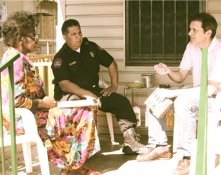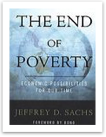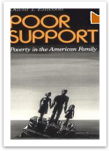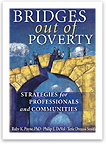







News and Resources is under construction . . .
Look here soon for books, articles, reviews and reports, as well as news about Partners in Hope.








News and Resources is still building . . .
We’re still posting reviews, documents, reports and links that deal with improving community. Look for more soon!

Poverty Issues Resources
How we define poverty and its causes can greatly influence how we work. Here is a treasure trove of articles, books, and links that will immerse you in the conversation about poverty. Just a hint: people either come down on poverty being caused and sustained by systems and structures or they put the emphasis on individuals. The truth is probably both/and. Keep an open mind and a willingness to embrace a variety of solutions.
Articles, Etc.
The article from the Basic Needs Coalition give you all the facts you need about what it takes for a family to survive in Travis County. Very helpful. For more information on how you can be involved in helping supply the basic needs of food, clothing, rent and utilities to a family, go to the Basic Needs Coalition website.
The Best Single Source Project is being developed by the Basic Needs Coalition as way to effectively link all of the service providers who provide emergency services (food, shelter, clothing, rent, and utilities) in Travis County. Begun in 2001, the program will eventually link service providers into a unified database and communication network to simplify access for clients. A good example of what collaboration can do!
Family Promise/Interfaith Hospitality Network (IHN) has put together this interactive multimedia toolkit to teach your group about the sources of poverty and homelessness and how to be effectively involved. 9 1-hour lessons can be used on a weekend or spread out over a series of weeks. Good for teenagers and adults alike.
The Global Development Research Council (GDRC) has a wealth of research-based documents on poverty issues. This article is a quick overview in outline form of the main definitions and causes of poverty. A good starting place. For more material, go to the GDRC website.
How do the poor view their world? Based on Ruby Payne’s work, this article explores the various mental rules of the poor and how this affects day-to-day living. Practical materials for service providers.
This is one of many helpful articles from the Rural Policy Research Institute (RUPRI). It’s thesis is that Mexican immigrant famlies are doing better economically after they have moved on from the traditional “gateway” cities in the southwest. Check out RUPRI website for lots of articles on poverty and a great bibliolgraphy.
A group called Mission Waco has been doing “Poverty Simulations” for more than a decade with great success. They have put their material into a very helpful workbook. If you want to expose your young people (or adults) to a weekend of what it means to struggle in American with too-limited resources, take a look at what MW has put together. You can also sign up for one of Mission Waco’s scheduled weekend simulations.
Links
The mission of the BNC is to lead the community in creating solutions that secure the basic resources – food, housing and clothing – of our neighbors in need. Numerous non-profits, city agencies and church groups are partners in the BNC. This is a great clearinghouse for information about poverty in Travis County, along with practical solutions.
Caritas is a social service agency of the Catholic diocese in Travis County, offering emergency aid and services to those in need. Over 20,000 central Texans benefited from their services last year. Take a look at their comprensive website and services. Caritas also acts as a key partner in the Best Single Source Project.
The CPPP is a nonpartisan, nonprofit research organization committed to improving public policies and private practices to better the economic and social conditions of low- and moderate-income Texans. Their research is used by many of the groups in central Texas who advocate with our government officials for the needy. If you want to get involved in advocacy for the poor, the CPPP website will inform you of lots of opportunities.
Family Promise/Interfaith Hospitality Network has a number of resources and programs around homelessness and moving families into economic independence. Great for churches.
This group has done great work just up the road from Austin in the areas of homelessness, community organization, job training and more. See the information about their “Poverty Simulation” for youth groups.
El Buen is an Episcopal mission in south Austin targeting Hispanic working poor. With a variety of services, including health, job training and language classes, El Buen has an impressive record of filling gaps in people’s lives. Last year, for instance, their medical clinic logged almost 9,000 visits.
Begun by El Buen Pastor Presbyterian Church in 1990, Manos de Cristo serves thousands of needy families and individuals each year. Its oldest ministry is a dental clinic. The clinic served over 3,700 clients last year for little or no cost to the patient. Manos also runs a clothes closet, food pantry, ESL and computer programs. A good resource for those helping the working poor.
World Vision is the world’s largest Christian relief and development organization. It is really a partnership of individual World Vision organizations in almost 100 countries, each with local leadership. World Vision has been on the forefront of publishing research and books dealing with community development and relief work among the poor. Check out their resources page for great reads, including material on urban issues in the U.S.
A coalition of 90 faith, labor and community organizations, the Let Justice Roll campaign is seeking to raise the federal and state minimum wage to the level of a “living wage” that helps keep people out of poverty. Whether you believe in this strategy or not, this page is a useful introduction to this hot topic.
The One Campaign is the American name of the Global Call to Action Against Poverty, a movement with groups in over 100 countries. The goal is to raise awareness about global AIDS and extreme poverty and to pressure governments to do more to reduce these scourges. You can argue whether these large movements are effective, but the material is worth looking at, especially if you work with youth. Many faith-based and denominational relief gropus have signed up to support One.

Bryant Myers draws on his many years in development work with World Vision in his book on transformational development. He focuses on the false dichotomy between the physical and spiritual that the church has accepted, and he gives a solid biblical basis for development. A must read.

Robert Linthicum defines a new strategy that goes beyond the superficial attempts of the past to empower the poor through faith-based community organizing.These principles were applied by World Vision in its work in urban slums in 21 cities around the world and resulted in 28 slum community organizations, the development of 52 businesses, and the building of more than 2,000 homes.

Jeffrey Sachs, perhaps the leading global economic reformer of our day, proposes a Big Solution for ending extreme global poverty (poverty that results in 20,000 deaths daily). Such luminaries as Bono have signed on to his ideas, and that makes them important to know about. You’ll like or not like this book, depending on whether you believe that comprehensive plans are possible or that solving the world’s ills must happen bit by bit. Wherever you fall, his stories and statistics will shake you, and perhaps encourage you at the same time.
Payne, DeVol and Smith discuss the mindset of generational poverty, contrasting it with temporary, situational poverty. In work that reflects Lewis “Culture of Poverty” idea, the writers give service providers, schools and others practical insights into how the poor picture the world on a day-to-day basis.

David Ellwood, Dean of Harvard’s John F. Kennedy School of Government, wrote this analysis of the effects of welfare in 1988 and it is still the starting place for discussion of welfare reform. Many of his ideas have been adopted by Congress over the past 20 years. If you want to dive into the world of public policy around welfare, read this.

In this newly revised edition of his best-selling book, Viv Grigg adds updated stories and statistics to his compelling firsthand account of living and ministering in a Manila squatter settlement. In establishing a church among this neglected population, Grigg considered the people’s spiritual needs together with their physical problems of poverty, offering a hope that transforms all parts of life. (Note from Allen: I met Grigg in 1985, and have rarely anyone who challenged me more with his Christlikeness and sacrificial lifestyle. This book will challenge you!

David Shipler, a journalist, interviewed dozens of working poor families in both urban and rural contexts. The book shows the complexity of their situations. Whether you find poverty to be caused by unjust structures or poverty a result of personal choices, you will find evidence for your beliefs here. What Shipler is able to do, however, is to show how these causes are intertwined, and he recommends that both sides need to embrace solutions from the other.





